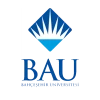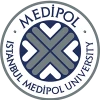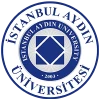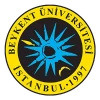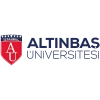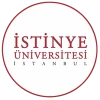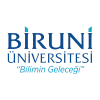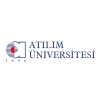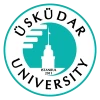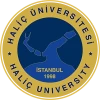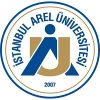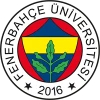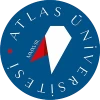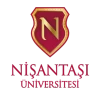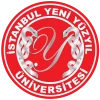Have you completed or are you about to complete a Bachelor's degree in Human Medicine and have an interest in anatomy, histology, and embryology? Then why not take advantage of the opportunities to study tissue and embryology in Turkey, where Turkish universities are among the best for teaching medical specializations, with reasonable tuition fees and appropriate terms of comparison compared to other universities whose fees have become very high and the conditions for application are very complex. It is an exciting field that prepares students for a range of rewarding careers in sectors such as pharmacology, scientific research, and medicine.
In this article, you will find everything you need to know about studying tissue and embryology medicine in Turkey, the available options and opportunities, enrollment conditions, tuition fees, and the best universities to study it.
What is the specialty of tissue and embryo medicine?
Histology and Embryology (Turkish: Histoloji ve Embriyoloji) studies the structure and development of the human body from the cellular level to the macroscopic level. Qualitative and quantitative descriptions of the structure of the human body relate to its subcellular, cellular, and macroscopic physical functions. Specialized study of cellular and subcellular development and organization of structures and systems of the body is also carried out in specialized study units in histology. The development of the structure and function of the musculature, head and neck, viscera, brain, spinal cord, and peripheral nervous system is studied in detail in modules in our specialized anatomy units.
What is the difference between histology and anatomy?
Histology and histopathology are two medical studies, and although they are defined as separate fields, there is often material that is common to both disciplines when studying. Histology entails the microscopic examination of cells, in order to determine their specific features and biological composition. However, anatomical pathology uses microscopic cytological examination (along with large histology and naked-eye examinations) in order to properly detect or diagnose disease. Anatomy and histology provide a comprehensive and broad understanding of the microscopic and macroscopic structure and function of the human body, its development, maturation, normal organization, and potential for disruption and damage.
Advantages of Studying Histopathology and Embryology in Turkey
The educational and academic level in Turkey has seen great development in recent times, and the field of medicine has had its share of this development and distinction. The health and medical sector in Turkey has also experienced tremendous growth, making it one of the top destinations for medical tourism. Therefore, some of the most important advantages of studying tissue medicine in Turkey are:
Turkish universities ranked twelfth in the world for teaching medical specializations
A group of professors and academics who are scientifically and theoretically qualified and have the highest level of experience and competence
Laboratories and labs equipped to the highest level, which include the latest technological devices and equipment
Opportunity to gain strong training and practical experience in hospitals and medical centers of the university equipped with the latest technologies used in microscopic anatomy
Possibility of studying in English or Turkish
Reasonable tuition fees compared to universities in Europe and America
Reasonable living costs in Turkey
Certificates from Turkish universities are recognized in Arab countries and all countries of the world
Graduates of tissue medicine in Turkey are able to work in all countries of the world, as the specialty of medicine in Turkey enjoys a good international reputation, and many patients from all over the world come to Turkey for treatment
Job opportunities after graduation in research centers, hospitals, academic work in universities, and opportunities to establish private clinics
Turkish universities offer postgraduate programs for various medical specialties.
Number of years studying histology and embryology in Turkey
The study of histology and embryology in Turkey begins after completing a 6-year medical program at one of the medical schools in the country. International students with medical degrees from other countries can also study tissue medicine in Turkey, but they must first pass the STS Equivalency Exam and then the TUS Specialty Exam, followed by training in the specialty.
The STS Equivalency Exam
The STS Equivalency Exam is a test that equates a medical degree obtained from a non-Turkish university to one issued by Turkish universities. It is held twice a year in February and August and consists of 120 questions in the clinical medicine departments. To pass the exam and obtain an equivalence certificate, students must score 35%. The test is in the Turkish language and uses a system where every 4 wrong answers cancel out one correct answer, so it is best to leave any questions that are not known during the exam. The questions are distributed as follows: 40 in medicine, 30 in pediatrics, 30 in general surgery, and 20 in obstetrics and gynecology.
Medical specialty training
Medical specialty training in Turkey is compulsory for students who obtained a medical degree from a university outside the country and wish to pursue medical specialization in one of the Turkish universities. They must choose 3 public universities to spend the training period in, and the Ministry will assign them to one of these three hospitals. The training period ranges from 6 to 9 months in the various departments of medicine (internal medicine, general surgery, pediatrics, obstetrics and gynecology, family medicine, and emergency medicine).
The TUS Exam
The TUS Exam is the Turkish medical specialty exam for foreign and Turkish physicians who wish to complete postgraduate studies in human medicine in Turkey. It is held twice a year in April and September, and registration for the test is done by the student personally. The TUS Exam includes questions on the topics of surgery, anatomy, biochemistry, and internal medicine. It is used to determine the medical specialty in which the doctor excels, through the total score obtained by the applicant. The lowest score for passing the exam is 45 out of a hundred, and the specialization in which you can continue your studies varies according to the degree and the university in which you will be distributed. For example, general surgery requires a total score between 51 and 60, while diagnostic radiology requires a total score between 58 and 65.
The exam consists of two parts: the first part, Basic, which consists of 120 MCQs and has a duration of 150 minutes. The questions are distributed as follows: 14 in anatomy, 18 in physiology, histology, and embryology, 22 in pathological chemistry, 22 in microbiology, 22 in pathology and pathological anatomy, and 22 in pharmacology. The second part of the clinical exam consists of 120 MCQs and has a duration of 150 minutes. The questions are distributed as follows: 40 in medicine, 30 in pediatrics, 30 in general surgery, and 20 in obstetrics and gynecology. The weighting process takes place one month after the exam, and distribution takes place within a maximum of two months after the exam.
Histopathology courses in Turkey
Histopathology courses in Türkiye combine theoretical lectures, seminars, and tutorials with hands-on laboratory sessions and workshops focused on anatomy and fieldwork. Depending on the organization, core modules may include: Anatomy of the upper and lower extremities, Anatomy of the chest, abdomen and pelvis, Advanced Human Embryology, Anatomy of the head and neck, Neuroanatomy, Foundations of Neuroscience and Neuroanatomy, Nervous system, Advanced Systemic Histology, Cytology, Genes, Evolution and Biodiversity, The locomotor system, Cardiovascular system, Principles of biochemistry, Molecular Biology, Introduction to pharmacology, and Research methods and ethics. Students also receive intensive practical exercises and applications in the university's hospitals and laboratories.
Conditions for Studying Histopathology and Embryology in Turkey
In order to study histopathology and embryology in Turkey, students must first have completed a Bachelor of Medicine from a Turkish university and passed the TUS specialty exam. For international students with a Bachelor of Medicine from a university outside of Turkey, they must first obtain an equivalency certificate by passing the STS equivalency exam, followed by the TUS specialty exam. Additionally, some universities may require proficiency in the Turkish language or an introductory year of study to master it, as it is necessary to interact with patients when receiving training in the university's hospitals.
The most prominent Turkish universities for the study of tissue medicine
Turkey has around 90 medical universities, most of which offer programs in both English and Turkish. The study of histopathology in Turkey follows the European model since Turkey became a member of the European Higher Education Organization in 2001 after agreeing to the terms of the Bologna Agreement. The following is a list of the most prominent Turkish universities that offer tissue medicine programs:
Public Universities
Ankara University
Uludağ University
University of Aegean
Private Universities
Yeditepe University
Yeditepe University is one of the most prestigious Turkish universities at both the local and international levels, and it is among the most distinguished universities in the medical fields. Founded in 1994 by the Istanbul Educational and Cultural Foundation, Yeditepe University aims to raise young people equipped with all the qualifications required in the business world and all the necessary technological skills, as well as being well-versed in different cultures. The university provides an education compatible with the expectations of the information age and offers a Master's program in Histopathology and Embryology.
Aydın University was established in 2003 by the Anadolu Education and Culture Foundation (AKEV). It is a private university that takes "Towards a Bright Future" as its motto, and the university adopts the principle of excellence in education. The university seeks to serve society through education that offers world-class basic, applied and interdisciplinary research, and mastery in professions that accelerate the conversion of information into a product, with an infrastructure that keeps up with the technological development required for education, training and research at the highest level. The university offers a Master's program in Tissue and Embryology and a PhD program in Tissue and Embryology.
Lokman Hakim University
Lokman Hakim University is one of the best Turkish universities in medical and health sciences majors. Established in 2018 as a non-profit (private) constituent university by the Sevgi Foundation, a non-governmental organization that has dedicated all its resources to education services, the university concentrates its efforts and resources in its educational activities in the medical and health sciences fields. The university offers a Master's program in Histopathology and Embryology.
Maltepe University
Maltepe University is one of the best Turkish universities, and the largest in terms of size, as it is located on an area of one million square meters. Since its establishment in 1997, the university maintains a distinguished and strong academic level. Located in Istanbul, the university offers a PhD program in Fetal and Histopathology.
Skills needed for Embryology:
Students who choose to study Embryology and Tissue Medicine need to ensure that they have some important skills, which will have an impact on their academic achievement in this major. The following are some of the personal and scientific skills appropriate for students studying Histopathology and Embryology:
Ability to multitask with precision and caution
Attention to detail
Analytical skills
Full commitment and responsibility
Time management skills
Patience in listening to patients' complaints
Ability to work under pressure
Good interaction and communication with all age groups
Ability to work as one team
Ability to make decisions
Distinguished knowledge in scientific subjects such as Chemistry and Biology.
Areas of Work for Graduates of the Specialization in embryology
Graduates of this program can occupy various positions, mainly in the field of research and academia in the Faculties of Medicine, Dentistry, and Biomedical Sciences. They are also ideal candidates for work in research laboratories and medical facilities. Primarily, they work as technicians to identify and diagnose a patient's disease(s). They may also help develop treatments, treat, prepare surgical tissue, or manage research projects. The most prominent jobs for graduates of the histology specialization include:
Doctor
Histology Technician
Medical Laboratory Technician
Biologist
Physical Therapist
Clinical Research Associate
Research Scientist
Pharmacologist
Nurse Practitioner
Pharmaceutical Salesperson
Finally, if medicine is your passion, you have a great opportunity to study histopathology and embryology in Turkey. At Turkish Campus, we understand that your future matters to us. Apply Now. We provide educational consulting and services in Turkey with honesty and professionalism. Contact us to reserve your academic seat and major, and we will help you every step of the way, from the beginning of your application to ensuring your university admission, arrival, and stability. A



